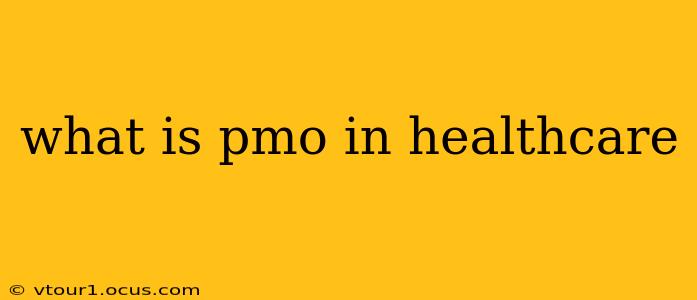The healthcare industry, a complex ecosystem of regulations, diverse stakeholders, and critical patient care, increasingly relies on robust project management to navigate its challenges and achieve strategic goals. This is where the Project Management Office (PMO) comes in. But what exactly is a PMO in healthcare, and what does it do?
A PMO in healthcare is a centralized unit responsible for managing projects and programs across the organization. It provides standardized methodologies, tools, and resources to ensure projects are delivered on time, within budget, and to the required quality standards. While the specific functions can vary depending on the size and structure of the healthcare organization, the core goal remains consistent: improving project success rates and contributing to the overall strategic objectives of the organization.
What are the Key Responsibilities of a Healthcare PMO?
A healthcare PMO's responsibilities often include:
- Developing and implementing project management methodologies: Establishing consistent processes, templates, and best practices for project planning, execution, monitoring, and closure. This ensures projects are managed effectively and efficiently, regardless of the team or department involved.
- Providing training and support: Equipping project managers and team members with the necessary skills and knowledge to effectively manage projects. This might include training on specific software, methodologies, or leadership skills.
- Managing project resources: This includes allocating budgets, staffing, and other resources efficiently to multiple projects, optimizing their utilization.
- Monitoring and reporting on project progress: Tracking key metrics, identifying potential risks and issues, and providing regular reports to stakeholders on project status and performance. This ensures transparency and accountability.
- Managing risks and issues: Proactively identifying and mitigating potential risks and addressing issues that arise during project execution.
- Portfolio management: This involves overseeing all projects within the organization to align them with strategic goals, prioritizing projects based on their value and impact.
- Ensuring compliance: Healthcare organizations face stringent regulations. A PMO plays a vital role in ensuring projects comply with relevant laws, regulations, and standards.
What are the Benefits of Having a PMO in Healthcare?
Implementing a PMO can provide numerous benefits to healthcare organizations, including:
- Improved project success rates: Standardized methodologies and consistent training lead to more predictable and successful project outcomes.
- Increased efficiency and productivity: Streamlined processes and optimized resource allocation improve overall efficiency and reduce project completion times.
- Reduced costs: Better project management leads to reduced rework, delays, and cost overruns.
- Enhanced communication and collaboration: PMOs foster improved communication and collaboration between different teams and departments, facilitating smoother project execution.
- Better alignment with strategic goals: Portfolio management ensures that projects support the overall strategic direction of the organization.
- Improved risk management: Proactive risk identification and mitigation reduces the likelihood of project failures and negative impacts.
What types of projects does a healthcare PMO manage?
The projects a healthcare PMO handles are diverse, encompassing a wide range of initiatives critical to the functioning and growth of the organization. These might include:
- Implementing new Electronic Health Record (EHR) systems: A major undertaking often requiring careful planning, extensive training, and close coordination across different departments.
- Building new facilities or expanding existing ones: Managing complex construction projects, coordinating with architects, contractors, and regulatory bodies.
- Developing and launching new clinical programs or services: Introducing new treatments, technologies, or services requires careful planning and execution to ensure patient safety and effectiveness.
- Improving operational efficiency: Streamlining processes, automating tasks, and improving workflows to enhance productivity and reduce costs.
- Cybersecurity enhancements: Implementing new security measures and protocols to protect sensitive patient data.
How does a healthcare PMO differ from other PMOs?
While the fundamental principles of project management remain the same, healthcare PMOs face unique challenges and considerations due to the highly regulated nature of the industry, the emphasis on patient safety, and the complexity of the healthcare ecosystem. This includes a deeper focus on compliance, risk management (particularly related to patient data), and collaboration with a broader range of stakeholders, including clinicians, regulatory bodies, and patients themselves.
This overview provides a comprehensive understanding of PMOs within the healthcare industry. Their role is crucial for success in a sector constantly evolving and under increasing pressure to deliver high-quality, efficient, and compliant care.
